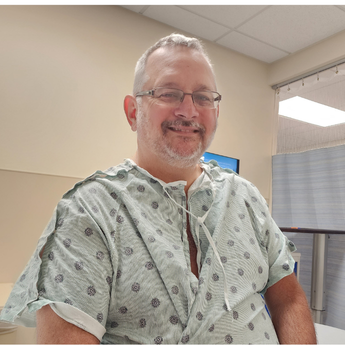By Dr. James Khan
Advances in the screening and management of breast cancer have resulted in substantial improvements for those diagnosed with the disease. Patients are living much longer after a breast cancer diagnosis, which is a major accomplishment of modern medicine. However, since patients are living longer, the complications associated with treatment (such as surgery, radiation, and chemotherapy) are becoming increasingly apparent. One such complication is the development of persistent pain in the area of breast cancer resection.
Persistent pain after breast cancer surgery is often referred to as Post-Mastectomy Pain Syndrome (PMPS), although it can equally affect those after a lumpectomy. Researchers define persistent pain as the presence of pain greater than three months after surgery, which is the expected time to heal from a procedure. PMPS is unfortunately common and high-quality data suggests that that one in three patients undergoing breast cancer surgery will develop persistent pain. Unfortunately, this is a staggeringly high rate of pain after a surgical procedure, and surprisingly among all types of surgeries performed worldwide, breast cancer surgery has one of the highest rates of persistent pain.
The development of persistent pain is due to many factors. The breast tissue is filled with many small nerves that can be accidentally irritated or injured during breast cancer surgery. Also, adjuvant therapies (treatments after surgery) such as chemotherapy and radiation therapy can likely result in additional nerve irritation and damage. Patients that are younger in age, have preoperative pain, have greater pain immediately after surgery, or suffer from psychosocial factors such as anxiety, are at a higher risk of persistent pain.
Those who suffer from persistent pain often describe the pain as mild to moderate in intensity, with some experiencing severe pain. Qualities of the pain include sharp, burning, or aching sensations, often with neuropathic features such as sensitivity to touch or tingling. The impact on daily life is significant, with many reporting limitations in physical activity and reduced overall well-being.
Management of persistent post-surgical pain can involve several different approaches combining physical and psychological therapies, prescription medications, and in some cases, interventional strategies. Non-pharmacological options include physical therapy to improve mobility and manage lymphedema, and psychological support to address the emotional aspects of chronic pain and cancer recovery. Pharmacologically, while there's limited evidence for specific medications, the use of antidepressants, anticonvulsants, and topical agents like capsaicin have shown some benefits. In our experience in the pain clinic, we find that a topical analgesic cream, such as lidocaine 4% (available over the counter), or a compounded pain cream tends to work well for first-line pharmacologic therapies. Interventional options such as nerve blocks (specifically a Serratus Plane Block, PECS Block, or Erector Spinae Block) or radiofrequency ablation of involved nerves can be trialed and may provide temporary relief for selected patients.
Despite the availability of management options, achieving complete resolution of pain is unfortunately uncommon. As such, more efforts are needed on preventing this pain disorder before it occurs. At the University Health Network in Toronto, we are leading an international multicenter randomized controlled trial evaluating the use of intravenous lidocaine during the time of breast cancer resection, to determine if it could prevent the development of persistent pain. There have been several studies documenting the promising potential of intravenous lidocaine in breast cancer surgery published previously, but we are undertaking a new trial in 1,602 patients to definitively prove its utility. Lidocaine is inexpensive and widely available, so if our study proves that it can help prevent pain, it has the potential to be given routinely to patients undergoing breast cancer surgery.
In addition, multidisciplinary efforts are needed to help and assist patients who suffer from this complication. We have developed a first-of-its kind Persistent Breast Cancer Pain Program at Mount Sinai Hospital. This is an interdisciplinary collaboration between breast surgeons, anesthesiologist, pain physicians, and nurse practitioners that assesses and manages patients with problematic pain as early as 3 months after their surgery. We trial a number of different management strategies, ranging from conservative to invasive interventions.
Given that breast cancer is one of the most commonly diagnosed cancers worldwide and it remains the cornerstone of management, greater efforts are needed to reduce pain and improve the quality of life of breast cancer patients whose treatment plan includes surgery. Our clinical and research programs are dedicated to identifying novel strategies to prevent and treat persistent pain and we continue to look for collaborators and partners to join us in this effort. To learn more about our programs, please see our program summary here or to make a donation, please click here.
Dr. James Khan is an Assistant Professor in the Department of Anesthesiology and Pain Medicine at the University of Toronto, and a practicing Chronic Pain Physician and Anesthesiologist at Mount Sinai Hospital in Toronto. He specializes in managing persistent pain disorders due to surgery and leads the Persistent Breast Cancer Pain Clinic at Mount Sinai. He also leads a clinical research program focusing on identifying novel treatment options to prevent and treat chronic pain disorders.







